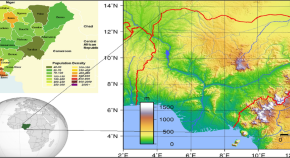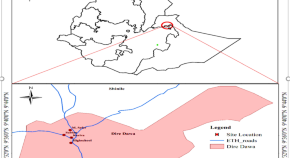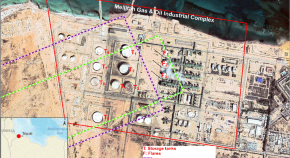
Collection
Earth and Environmental Sciences: The Intersection of Air Quality and Atmospheric Chemistry with Sustainable Development
- Submission status
- Open
- Open for submission from
- 04 July 2023
- Submission deadline
- 31 July 2024
Editors
-
Pallavi Saxena
Pallavi Saxena is an Assistant Professor in the Department of Environmental Science, Hindu College, University of Delhi, India and serves as Scientific Steering Committee (SSC) member in iLEAPS, UK. Her area of interest is air pollution, trace gases and aerosol chemistry and impacts on plant and human health, biomonitoring, nature-based solutions, sustainability indicators and phytoremediation and working in this area for 14 years.
-
Saurabh Sonwani
Saurabh Sonwani is currently working as Assistant Professor at the Department of Environmental Studies, Zakir Husain Delhi College, University of Delhi, India and Chair of Early Career Representative of South Asia and Middle East Region of iLEAPS. He has about 8 years of research experience in the field of atmospheric sciences and environmental health particularly in air pollution, atmospheric chemistry and related impacts on human and plant health.
-
Langley DeWitt
Langley DeWitt is the Director of the IGAC International Project at the University of Colorado, USA. Langley DeWitt is an atmospheric chemist with a global perspective, whose research has spanned three continents, two oceans, two planets, and a couple of aeons of time. Langley is excited to bring her scientific expertise, international experience, and project management skills together to help foster the international scientific community, collaboration, and outreach on issues related to atmospheric chemistry.
-
Semeena V. Shamsudheen
Semeena V. Shamsudheen is an Air Pollution Scientist who turned into a land-atmospheric scientist recently with a position at the UK Centre for Ecology and Hydrology, UK and as iLEAPS Project Manager. Her research at the UKCEH focuses on different aspects of earth science. Her current projects are SWIFT - Science for Weather Information and Technology for Africa: Using satellite data to develop nowcasting tools using Land Surface Temperature Anomaly (MSG – SEVIRI) and precipitation data (Global Precipitation Monitoring Network) for extreme weather events in West and East Africa.
-
Andriannah Mbandi
Andriannah Mbandi is a Chemical Engineer at the School of Engineering and Technology, South Eastern Kenya University, Kenya. She has 16 years of experience in manufacturing, hazardous chemicals and waste, climate change, mobility and air pollution. She supervises and teaches at the South Eastern Kenya University, as well as working for UNEP, African Governments and sits on various scientific advisory groups including the African Group of Atmospheric Sciences (ANGA).
-
Cathy Leal-Liousse
Cathy Leal-Liousse is a Research Director at CNRS Laboratoire d’ Aerologie, CNRS, France. She is an expert in developing emission inventories. She is also working on the impact of aerosol emissions on air pollution, climate and human health with a multidisciplinary approach, combining field measurements and numerical simulations. She is coordinating several research programs focusing on these topics in Africa.
Articles (3 in this collection)
-

-
Assessment of particulate matter and particle path trajectory analysis using a HYSPLIT model over Dire Dawa, Ethiopia
Authors (first, second and last of 5)
- Teshager Argaw Endale
- Gelana Amente Raba
- Haftu Brhane Gebremichael
- Content type: Research
- Open Access
- Published: 13 March 2024
- Article: 131

-
Preliminary assessment of volatile organic compounds and hazardous gases dispersion at low winds: case study of Mellitah Gas Complex, Libya
Authors (first, second and last of 5)
- Abdulhamid B. M. Danna
- Mohamed Haddar
- Mounir Baccar
- Content type: Research
- Open Access
- Published: 20 February 2024
- Article: 84








